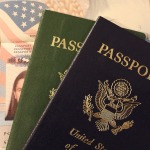Six top tips for organising and managing an international press trip
 Recently, I was tasked with organising press attendees and interviews for a client customer event in Barcelona. Now, I’m usually comfortable with organising and staffing press interviews. But doing this in another country, without immediate support from the Spark team, did test my comfort zone. Nevertheless, the event and the processes leading up to it all ran well and I learnt a lot. Here are my key tips from the experience:
Recently, I was tasked with organising press attendees and interviews for a client customer event in Barcelona. Now, I’m usually comfortable with organising and staffing press interviews. But doing this in another country, without immediate support from the Spark team, did test my comfort zone. Nevertheless, the event and the processes leading up to it all ran well and I learnt a lot. Here are my key tips from the experience:
- Double, triple, quadruple check everything – for me, this mainly meant making sure that the interview times between press and spokespeople synced-up, were logged correctly and communicated to the right people. We also had to book transport and accommodation for our press, so ensuring that they were correct and sent to them in time was critical. As obvious as it may seem, conducting meticulous checks well in advance will ensure that there are no costly and embarrassing problems during the event.
- Keeping everyone in the know – organising a big event is always a stressful occasion for a client. Therefore, it is important to provide regular updates of your progress to give them confidence that all the PR activity is well in hand. During the run-up to the event, be sure to communicate up-to-date schedules and also inform them of any potential issues. In hectic times, such work may often appear to go unnoticed but it is still valued nevertheless.
- Leave prepared – prior to leaving for an event, make sure that you’ve packed everything needed to see you through your trip (i.e. – journalist/spokespeople contact numbers, briefing schedules, travel and hotel reservations, passport, etc.). Additionally you should check that you have sent briefing schedules and event itineraries to journalists/spokespeople before you leave. Be sure to bring spare briefing documents and itineraries with you, as someone is always likely to want one.
- Accidental run-ins – during events, it is common for spokespeople diaries to be stretched, which could impact your press briefing timetable. However, I found it useful to stage catch-ups with the relevant spokespeople on the morning of their interviews to remind them of their commitments, confirm the briefing location, and to ask if they had any questions. Doing this will jog their memory and can also help you flag any problems with their schedule way ahead of time.
- Customer care – following interviews, in particularly those involving a client’s customers, always be sure to thank the spokesperson for their participation and willingness to speak to the press. Events provide an extremely good opportunity to build relationships that could be used in the future to open new PR opportunities for your client. Creating a good impression is essential in helping you do this.
- Don’t panic – you can be the most prepared person in the world and have an event press schedule organised down to a T. But there will always be occasions where problems occur that are simply beyond your control. During times like this, it’s important to keep a cool head. However, make sure you are able to provide your client with a realistic explanation of the issue, and if possible, a solution outlining what can be done to avoid such challenges in the future.